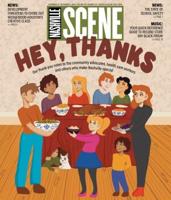In a world of global networks and frequently porous borders, the old framework of “foreign” cinema seems increasingly outdated — what does it mean for a movie, let alone a human being, to be from one single place? Director Davy Chou’s unpredictable new film Return to Seoul takes that kind of question as a challenge, exploring the notion of diaspora through an appropriately international mélange of influences. It’s at once a vulnerable exploration of personal identity and a beguiling kaleidoscope of bold color and pop music.
The film’s first scene is a moment of recognition that immediately frames our understanding of its protagonist: Frédérique Benoît (Park Ji-min) is ethnically Korean, but she’s clocked as a foreign tourist when checking into a hotel in Seoul, unable to speak the language. Freddie, as everyone calls her, was born in South Korea, but was given up for adoption and placed with a family in France, the place she’s called home since her faintest memories. But it’s obvious that something here is gnawing at her, drawing her back to a culture and world she can feel within her but has never really known.
Freddie reaches out to her birth parents, but only her father wants to meet. The circumstances could not be more strained, as she’s awkwardly inducted into a family she had no idea existed: an evangelical grandmother who prays for her salvation, half-sisters who meet her with unexpected curiosity, and an aunt who attempts to facilitate the emotional negotiations through her limited knowledge of English. Though Freddie’s father (veteran Korean actor Oh Kwang-rok) claims to have found peace with his new wife and children, it’s evident that he’s not standing on emotionally solid ground — a faraway look in his eyes and a drinking problem suggest he never really made peace with the decision to give up his firstborn daughter.
When we first meet Freddie, there’s a slight immaturity about her, but a perceptiveness as well. Despite her age, you can tell that people feel a little intimidated around her, with a gaze that pierces right through you and a tendency to implode social situations with a dramatic flair. As the years go by and the film makes several disarming time jumps, we see the evolution of Freddie — from disaffected student to party animal to international girlboss, a person constantly mutating but always in search of a true self.
First-time actor Park Ji-min is an absolute marvel as Freddie, a complicated woman who reinvents herself at every turn. Like the character she plays, Park is impossible to pin down, infusing her character with a singularly manic energy; there’s a true sense of aliveness to her role that so few actors are ever able to achieve, a perfect fusion of character and artist. Like the lead of a French New Wave film, she throws herself into life with wild abandon, unsettling the careful orbit of those around her.
In terms of style, filmmaker Davy Chou mimics his main character, shifting the tone and even the genre at a moment’s notice. While there’s a tenderness and patience to conversations, Return to Seoul can erupt into a frenzy without warning as Freddie follows her instincts, guided by a soundtrack of vintage Korean pop and hard-hitting techno. In a bizarre side plot, Return to Seoul even hints at transforming itself into a spy movie, as Freddie becomes an arms dealer, the kind of international woman of intrigue who might lead an Oliver Assayas thriller.
But for every club scene or genre twist, there’s another moment of restraint and contemplativeness, as Chou creates a distinct blend of influences: Though the story is not directly his own, the Cambodian-French filmmaker clearly sees himself in a character caught between multiple worlds and selves. Though certain story elements, like the arms dealer subplot, might feel slightly underbaked, Davy Chou and Park Ji-min make for a richly productive pairing as director and performer, each one fully committing to a spirit of restless creativity.
As a film that proudly wears its influences on its sleeve, Return to Seoul suggests that culture is not just a static identity, something you’re assigned at birth, but a living process of osmosis and reinvention. Every place you’ve been and every song you hear is carried somewhere within, leaving traces as your life unwinds.





